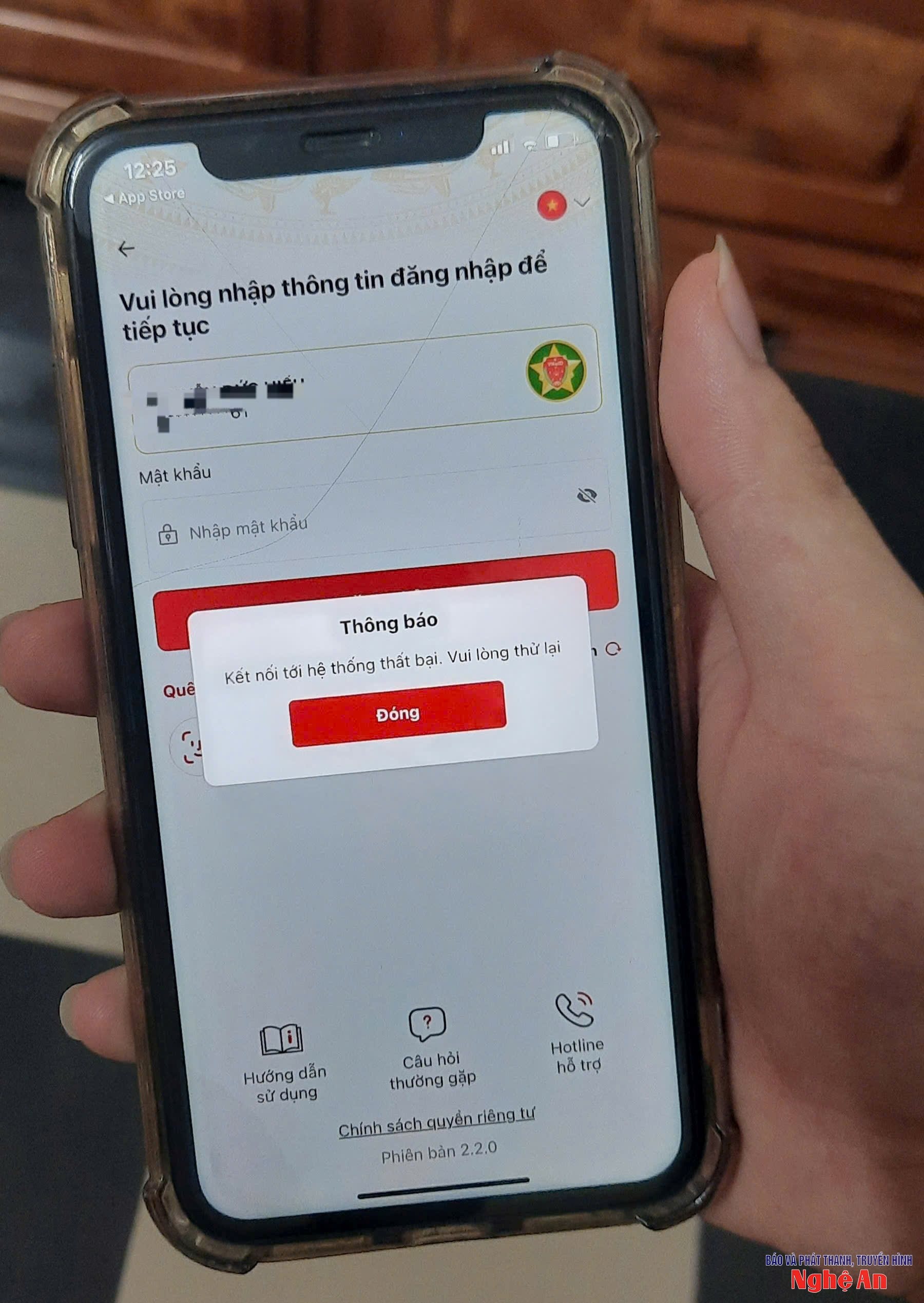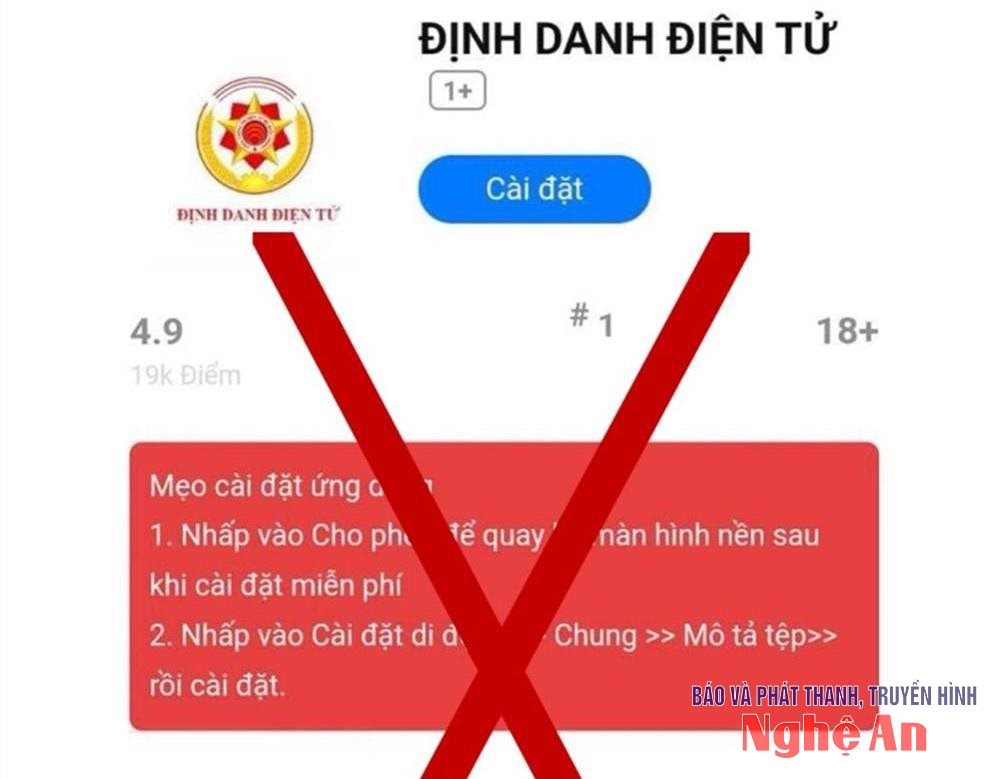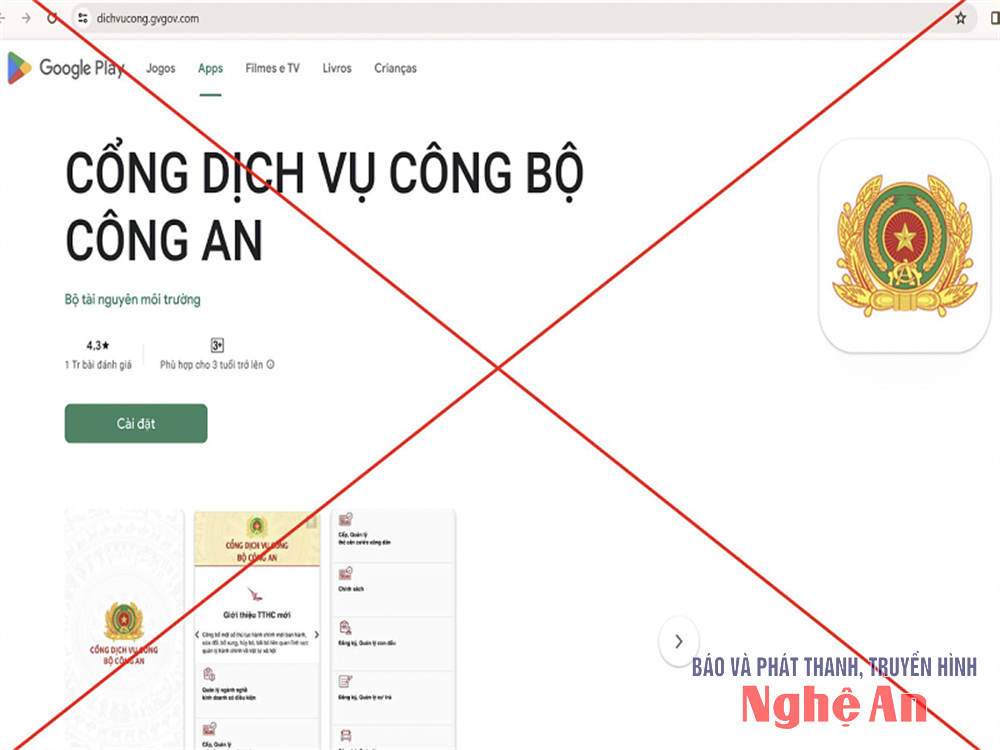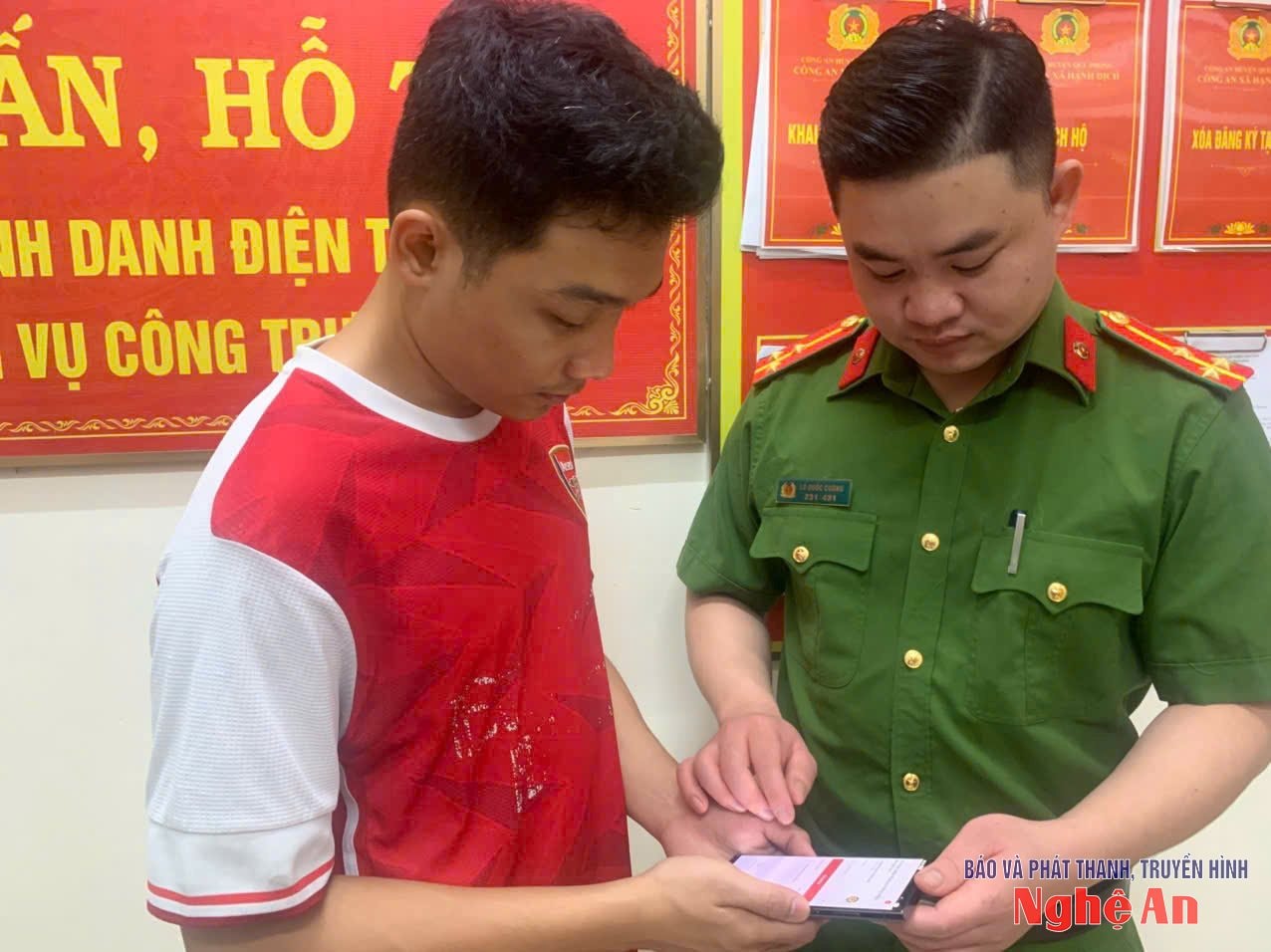The Ministry of Public Security warns people not to provide information over the phone and not to update VNeID via strange links.
Taking advantage of updating personal information on VNeID after the administrative merger, many subjects impersonating officials called people to trick them into accessing links containing malicious code to appropriate property. Authorities warn that people do not need to update themselves, all operations are performed automatically by the system; absolutely do not provide personal information over the phone.
Almost lost money because of fake VNeID update link
In early July, after the whole country officially completed the merger of administrative units, the VNeID electronic identification application became an important tool for people to look up personal information according to the new boundaries.
However, taking advantage of the system being in the process of synchronizing data and the sudden increase in the need to check information, scammers quickly deployed many sophisticated tricks.

Ms. NTT, residing in Vinh Loc ward, was one of the victims who almost fell into the trap. On the morning of July 2, she received a call from an unknown phone number, with a person claiming to be a local police officer on the other end. This person informed that due to changes in administrative boundaries, all citizens were required to reconfirm their personal information on VNeID to avoid having their “electronic identification account locked” and “the right to use online public services frozen”.
To increase credibility, the subject also sent a "quick access to verify information" link via text message. This link leads to an interface similar to the real VNeID application, requiring users to enter bank account information to confirm their identity, then send an OTP code to their phone to complete the "verification". Fortunately, Ms. T. was alert and did not enter the verification code.
Ms. T. said that normally when receiving strange calls, she would immediately hang up. However, because it coincided with the time when the whole country was implementing the merger of administrative units, and the content of the call was related to updating personal information, she was somewhat confused.
“If I hadn’t checked the information from the Ministry of Public Security’s official website and verified it with my friends, I might have lost money in my account. They spoke very confidently and used technical terms, which easily confused listeners and made them follow,” Ms. T. recounted.

This is not an isolated case. In less than 6 days since VNeID started updating administrative information according to new boundaries, many people in other localities also reported receiving calls and messages with similar content. Fraudsters often prey on people's fear of losing access, having their "electronic citizenship rights cut off", or warning that their accounts are at risk of "identity theft" to urge people to follow the instructions.
VNeID will automatically update personal information
From July 1, 2025, after completing the arrangement of administrative units nationwide, Vietnam officially operates a two-level local government. Along with this change, people's personal administrative data also needs to be adjusted to suit the new boundaries. Immediately after that, the VNeID electronic identification application began the process of automatically updating information for citizens.
According to the official announcement from the Department of Administrative Police for Social Order (C06 - Ministry of Public Security), the update includes information fields such as: place of birth registration, hometown, permanent residence, temporary residence and current residence. All of this data is extracted and adjusted from the population management system, absolutely no need for people to provide additional information or manually update. The update process is carried out synchronously nationwide and will be completed as soon as possible.
However, due to the large amount of data and the sudden increase in the number of people accessing VNeID in the first days of July, some people reported slow access, and even inaccurate or incomplete information.
C06 said that this is a normal phenomenon during the system-wide data synchronization phase and committed that any discrepancies will be reviewed and updated accurately. People do not need to worry too much if they see that their hometown information, residential address... do not accurately reflect the current reality.
To support people in proactively looking up personal information, C06 also guides three ways to check directly on the VNeID application: the first way is to access the "Document Wallet" section, select "View detailed information" to look up the place of birth registration, hometown, permanent residence and current residence; the second way is to go to the "ID Card/CCCD" section, view synchronized electronic ID information; and the third way is to check the "Residence Information" section to know the residential address of household members.
According to Colonel Luong The Loc, Head of the Department of Administrative Management of Social Order, Nghe An Provincial Police: During this process, people need to be especially vigilant against tricks of impersonating the VNeID application to commit fraud. Taking advantage of changes in administrative boundaries and the need to update personal information, bad guys have impersonated police officers, new ward/commune officials to call, instruct people to access fake links or install unofficial VNeID applications containing malware. Their purpose is to take control of the device, thereby stealing personal information, bank OTP codes or biometric data to appropriate property.


Fraudulent methods are increasingly sophisticated: they use mobile phone numbers or virtual switchboards, make fake calls in the name of agencies and organizations, introduce themselves as officials of the Commune/Ward Committee, local police... to inform about changes in the administrative apparatus, and ask people to update new information. The subjects have collected people's personal information in advance and provided it to create trust before asking them to follow their instructions.
The subjects asked people to access the link provided by them or install the VNeID application, a fake public service containing malware. After people accessed or installed the application, they took control of the device, continued to lure people to follow the instructions to find a way to get the OTP code of the bank account or lured people to look at the phone to get biometric data, thereby appropriating money in the people's bank account.
Faced with the above reality, on July 5, the Ministry of Public Security issued a warning about bad guys tricking people into installing fake VNeID applications containing malicious code to appropriate property.
The Ministry of Public Security recommends that people absolutely do not follow requests over the phone from people claiming to be commune/ward officials or local police. If you need to update information, you must go directly to the police station of the commune/ward where you live.
If you accidentally access a fake link or install a fake application, you need to immediately turn off your phone, contact your bank to lock your account and report to the nearest police station for support.

People should only download and use the official version of the VNeID application released by the Ministry of Public Security, not install it from unknown sources. At the same time, they should not share newly updated personal information on social networks, including photos of citizen identification cards, information about residence, hometown, electronic household registration... Making this data public can create conditions for bad actors to take advantage of impersonation, fraud or privacy infringement.
In reality, high-tech scams increasingly target the lack of information and subjectivity of a segment of the population. Taking advantage of the administrative merger policy to impersonate officials to request information not only causes confusion but also directly threatens property, privacy and personal data security. Therefore, each person needs to proactively check information from official sources, raise vigilance and promptly share warnings with family, friends and the community.
The arrangement and merger of administrative units aims to streamline the apparatus, improve management efficiency and serve the people. VNeID is an effective support tool for this transformation process. However, to avoid being exploited, each citizen needs to remember the principle: do not provide personal information, bank accounts, OTP codes to any third party via phone or links of unknown origin. Only trust the official information channels of the Ministry of Public Security and local authorities.
In the context of strong digital transformation, protecting personal data is as important as protecting physical assets. Being vigilant, alert and proactive are three practical “shields” for people to protect themselves from increasingly sophisticated forms of high-tech fraud in cyberspace today.
